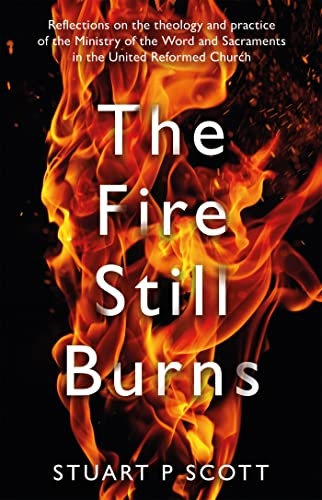The Fire Still Burns by Stuart P Scott
Scott seeks to analyse the URC's struggles: despite this book’s specific and possibly unfamiliar context, it is worth reading by everyone concerned for the future shape of churches in 21st-century Britain
 The Fire Still Burns
The Fire Still Burns
By Stuart P Scott
Troubador
ISBN 978 180313 248 8
Reviewed by Andrew Kleissner
The United Reformed Church is struggling. It has haemorrhaged members ever since its optimistic beginning in 1972 as a pioneer ecumenical denomination. Its structures have been simplified, training institutions have been closed, and an ever-diminishing number of ministers is being spread more and more thinly across its congregations. Many hours have been spent producing reports, many discussions have taken place at Synod and General Assembly, many initiatives have been offered to the churches. Yet the decline, exacerbated by the Covid pandemic, seems unstoppable.
It is against this discouraging background that Stuart Scott, a recently retired URC minister of many years’ experience, has written his book of seven “reflections”. Indeed, he has witnessed the situation at first hand: his first reflection gives us the story of the church to which he was called in 2001, with a thriving congregation of around 100 adults, to its final days in 2016 with attendance down to single figures. Scott seeks to analyse what might have gone wrong: was it the reluctance of the congregation to accept change, the apparent inability of the denomination to provide appropriate support, or the failure of a grant application to English Heritage? These and other factors all played their part but ultimately, he says, the church simply “ran out of years” – a recurring trope within the book.
Other chapters of this book – which do overlap somewhat – ask, “What are ministers for?”, “Where are we going?”, and cover the sad history of the many reports to Assembly which did not lead to action. One section seeks to assess Pioneer Ministry and asks pertinent questions about its sustainability and its relationship to existing denominational structures. The author expresses doubts about ministerial training as he (perhaps surprisingly) wonders if current emphases on Mission are actually the most fruitful.
The book ends with reflections on ministry before, during and after the pandemic, noting the heroic and imaginative ways in which many ministers responded to its demands and also the costs to themselves and their churches, some of which failed to reopen afterwards. The “new normal” is as yet unclear.
It is clear from reading this book that the URC pays high regard to well-trained Ministers of Word and Sacrament and sees them as central to the life of local congregations. However single pastorates are now a distant memory and many ministers have to serve multiple churches. This remains a fundamental problem for the denomination; several solutions have been proposed but none has been taken up with any enthusiasm. Instead the “salami slicing” continues; Scott says that the results of this policy have been dire but seems unable to offer a better way forward.
Obviously the United Reformed Church – for which I have a great fondness, having served a URC/Baptist church for eleven years – is very different to our Baptist Union, not least in its conciliar structure which seems to impede rather than facilitate rapid decision-making.
Nevertheless some of the issues raised in this book are common to both denominations: the increasing distance between the administrative “centre” and individual churches, the fact that congregations are mostly smaller than they once were, and the constraining conservatism of much church culture, all set against the rapidly-changing secular landscape.
These similarities do mean that, despite this book’s specific and possibly unfamiliar context, it is worth reading by everyone who is concerned for the future shape of churches in 21st-century Britain. Stuart Scott seeks to reassure us by asserting that “The Fire Still Burns” – but one must wonder if he is really as confident as he sounds.
Andrew Kleissner is a Baptist minister in Cardiff. He has had extensive ecumenical experience in local church groupings, and was for some years a member of the ‘Theology and Unity Group’ of Churches Together in England
Baptist Times, 30/03/2023